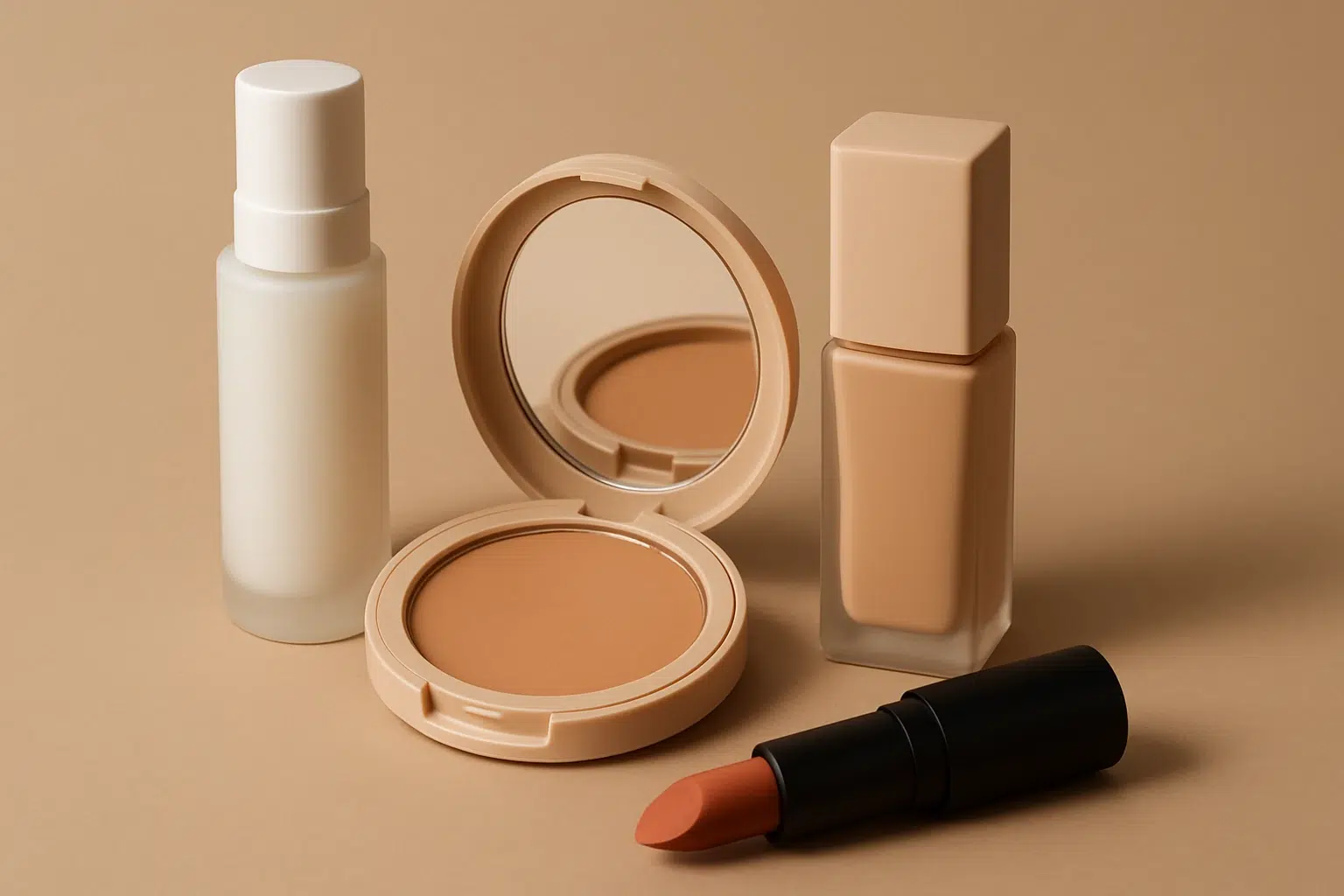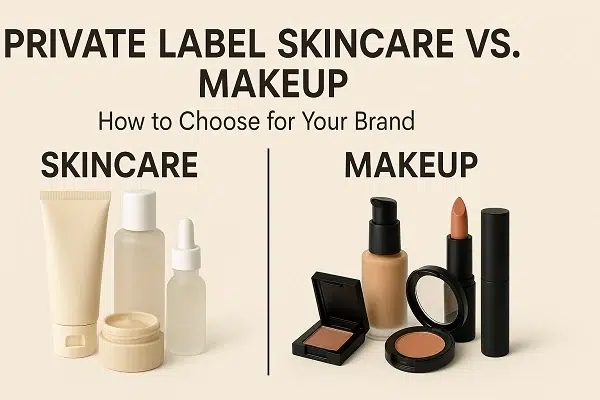The beauty and cosmetics industry is a multibillion-dollar global market that continues to expand. The demand for innovative, high-quality color cosmetics has led many brands to explore contract manufacturing as a way to bring their vision to life.
In this blog post, we’ll delve into the fascinating world of contract manufacturing in color cosmetics. We’ll define the concept, explore its importance, discuss the basics, advantages, and challenges, and even take a glimpse into the latest trends in this dynamic industry.
Table of Contents
The Basics of Contract Manufacturing
What Is Contract Manufacturing in Color Cosmetics?
Contract manufacturing in the color cosmetics industry involves outsourcing the production of beauty products to specialized manufacturers. Cosmetic brands collaborate with these third-party manufacturers to bring their makeup and skincare formulations to market. This approach allows brands to focus on marketing, branding, and distribution while leaving the intricacies of product development and manufacturing to the experts.
Key Players and Their Roles
Contract manufacturing involves several key players, each with distinct roles. Cosmetic brands are the product owners and the driving force behind the concept and design. They collaborate with contract manufacturers who are responsible for turning these concepts into tangible products. Quality control and regulatory compliance are overseen by quality assurance teams, while logistics and distribution are handled by the brand.
Types of Products Manufactured
A wide array of color cosmetics and skincare products can be manufactured through contract manufacturing. These products range from lipsticks, eyeshadows, and foundations to skincare creams, serums, and sunscreens. The versatility of contract manufacturing allows brands to create a diverse range of products to cater to different consumer needs.
Advantages of Contract Manufacturing
Cost-Effectiveness
One of the primary advantages of contract manufacturing is cost-effectiveness. Setting up an in-house production facility can be prohibitively expensive. Contract manufacturers, on the other hand, have already made significant investments in state-of-the-art equipment and facilities. This not only reduces upfront costs for cosmetic brands but also allows them to benefit from economies of scale.
Scalability
Contract manufacturing offers brands the flexibility to scale production up or down as needed. Whether it’s responding to seasonal demand, launching a new product line, or entering new markets, contract manufacturers can adjust production volumes accordingly. This scalability ensures that brands can stay agile and responsive to market trends.
Expertise and Innovation
Contract manufacturers are industry experts with extensive knowledge of formulations, ingredient sourcing, and regulatory compliance. They are continually researching and experimenting with new ingredients and technologies, ensuring that products are at the forefront of innovation. Brands can tap into this expertise to create cutting-edge cosmetic products.
Time and Resource Efficiency
Collaborating with a contract manufacturer saves brands a significant amount of time and resources. Instead of spending time on research, development, and production, brands can allocate their resources to marketing, sales, and brand building. This efficiency can be a game-changer in today’s fast-paced cosmetics industry.
The Contract Manufacturing Process
Research and Development
The journey of a color cosmetic product begins with research and development. Cosmetic brands work closely with contract manufacturers to define the product’s concept, target audience, and unique selling points. Formulation development, ingredient selection, and prototype creation take place during this phase.
Formulation and Product Development
After the initial concept is approved, the formulation process begins. It involves creating the actual product, selecting raw materials, and fine-tuning the formula to meet quality and performance standards. Product development often requires several iterations and rigorous testing to ensure safety and effectiveness.
Quality Control and Testing
Quality control is paramount in the cosmetics industry. Contract manufacturers employ rigorous quality control measures throughout the manufacturing process, from raw material inspection to final product testing. Products must meet strict quality and safety standards before they are released to the market.
Production and Packaging
Once the product formulation is finalized and quality control checks are complete, the manufacturing process begins. This phase involves producing the cosmetics in large quantities and packaging them according to the brand’s specifications. The products are then ready for distribution to retailers and consumers.
Choosing the Right Contract Manufacturer
Factors to Consider
Selecting the right contract manufacturer is a crucial decision for cosmetic brands. Factors to consider include the manufacturer’s reputation, experience, capabilities, and ability to meet quality and safety standards. Additionally, compatibility with the brand’s values and goals is essential for a successful partnership.
Questions to Ask
Brands should ask a series of questions to potential contract manufacturers to ensure they are the right fit. These questions might cover areas such as production capacity, lead times, regulatory compliance, and customization options. It’s also important to inquire about the manufacturer’s experience in creating similar products.
Case Studies of Successful Collaborations
Examining successful collaborations between cosmetic brands and contract manufacturers can provide valuable insights. Case studies highlight real-world examples of how brands have benefited from outsourcing production. By learning from these success stories, brands can make more informed decisions when choosing a partner.
Challenges and Considerations
Quality Assurance and Compliance
Ensuring consistent quality and compliance with regulatory standards is a top priority for contract manufacturers. Brands must maintain open lines of communication with manufacturers to address any quality control issues promptly. Rigorous quality assurance practices help prevent product recalls and maintain consumer trust.

Intellectual Property and Confidentiality
Protecting intellectual property and maintaining confidentiality is a critical consideration in contract manufacturing. Brands must establish clear agreements and safeguards to protect their formulations, proprietary information, and branding strategies.
Communication and Collaboration
Effective communication and collaboration are key to a successful partnership. Brands and manufacturers must work closely together throughout the entire product development and production process. Regular meetings, shared goals, and a cooperative approach are essential for a productive working relationship.
Trends in Contract Manufacturing
Sustainable and Clean Beauty Products
The cosmetics industry is witnessing a growing trend toward sustainability and clean beauty. Contract manufacturers are adapting by offering eco-friendly packaging options, organic and natural formulations, and reduced environmental impact in the production process.
Customization and Personalization
Consumers are increasingly seeking personalized beauty products tailored to their unique needs. Contract manufacturers are now equipped to provide customization options, allowing brands to offer personalized color cosmetics and skincare solutions.
Technology Integration
The integration of technology, such as 3D printing and artificial intelligence, is transforming the way cosmetics are formulated, produced, and marketed. Contract manufacturers are at the forefront of these technological advancements, enabling brands to create innovative and tech-savvy products.
Conclusion
The world of contract manufacturing in color cosmetics is a dynamic and essential part of the beauty industry. It offers brands the opportunity to bring their cosmetic visions to life efficiently and cost-effectively.
By choosing the right contract manufacturer and navigating the complexities of quality control and compliance, brands can thrive in this competitive market. Furthermore, staying attuned to industry trends and consumer preferences can lead to the creation of innovative, sustainable, and personalized cosmetic products that resonate with modern consumers.
As you explore the realm of contract manufacturing in color cosmetics, you’ll discover a world of possibilities that can help your brand achieve its goals and delight your customers with high-quality, innovative beauty products.







